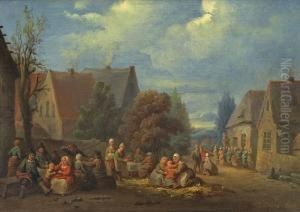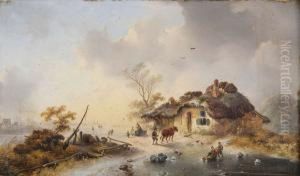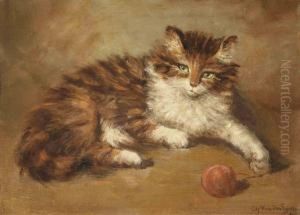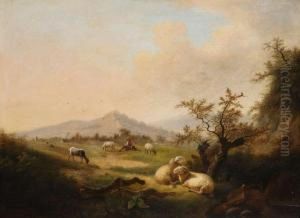Charles Van Der Eycken Paintings
Charles Van Der Eycken was a Belgian painter born in 1859, renowned for his detailed and evocative depictions of interior scenes, often lushly appointed and populated with figures in various states of repose or gentle activity. His work is characterized by a meticulous attention to detail, a rich palette, and a keen observation of light and shadow, which together create a warm, inviting atmosphere that seems both realistic and idealized.
Van Der Eycken's upbringing and early life in Brussels, where he was born and spent most of his career, deeply influenced his artistic trajectory. He was trained at the Royal Academy of Fine Arts in Brussels, which was a significant center for art education in 19th-century Europe. His education there provided him with a strong foundation in the classical principles of painting, but it was his personal inclination towards interior scenes and genre painting that defined his career.
Throughout his lifetime, Van Der Eycken enjoyed considerable success and recognition. His paintings were sought after by the bourgeoisie and aristocracy of the time, who appreciated his ability to capture the elegance and refined leisure of domestic life. He exhibited his work widely, both in Belgium and abroad, contributing to his reputation as a leading figure in his genre.
After his death in 1923, Charles Van Der Eycken's work continued to be appreciated by collectors and art aficionados. While perhaps not as widely recognized today as some of his contemporaries, his paintings remain a testament to the skill and aesthetic sensibilities of late 19th and early 20th-century Belgian art. His depictions of serene and sophisticated interiors offer a window into a bygone era, reflecting the social and cultural milieu of his time.




